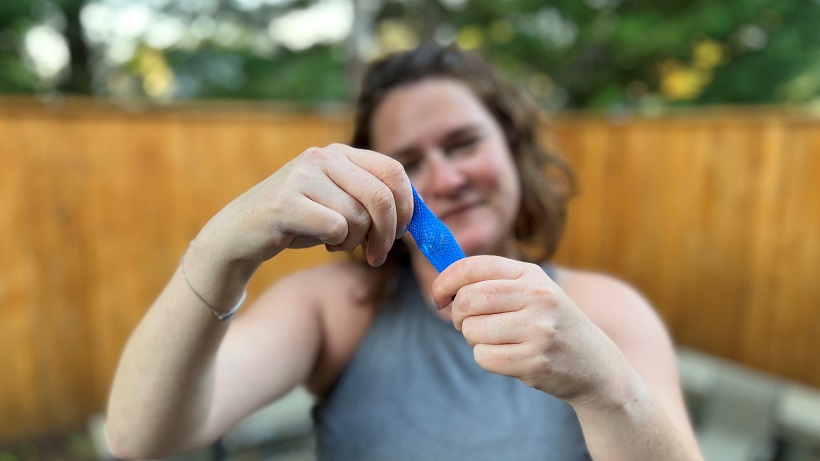There are certain moments of childhood that I will never forget. Many of them are positive, built on love and joyful celebration. Of course there are a few (and thankfully only a few) that I will never forget because of the yucky, negative feeling I had in that moment. I distinctly remember a moment when my piano teacher pulled my ponytail to make me sit up straighter, which is probably the reason I stopped learning piano. I remember the first time I got a bad burn from having my fingers too close to a fire. I’m sure you have your list as well. While the negative memories are filled with interactions that felt bad or shameful, the positive memories from throughout my life left me with amazing sensory moments. The smells, the feelings, they all bring back a sense of love and connection, especially when it comes to distinctly Jewish memories. Those Jewish memories are why I became a rabbi, because being in shul and “doing Jewish” offered a sense of peace, beauty, and wholeness.

As I walk into my tenth High Holidays this fall at Neveh Shalom, you probably know by now that one of my main goals in my rabbinate is instilling a love of Judaism built on everyone feeling safe, joyful, and welcomed in our community, and that starts with our youngest congregants, because that’s when those positive (or negative) memories are made. If you’ve seen the carts of fidget toys or noticed a child playing with Wikki Stix, stickers, or puzzles, it’s with this purpose in mind. There are more ways to keep children engaged in services than just scolding them for being noisy. They’re the future leaders of our Jewish community, and they should remember the positive feelings they had being part of it. And this doesn’t stop at children; it’s equally important to make adults feel loved and welcomed, whether that means changing the wording and pacing of prayers and announcements, or creating new programs or connective opportunities so that no one feels left out. But why is this so critical? One answer is in this week’s Torah portion.
Our parshah this week, Beha’alotcha, lands us with Aaron and Moses as they get into their daily requirements of their jobs. This section of text begins with instructions for the purification of the Levites in their holy work in the Tabernacle. We read about the first Passover sacrifice in the wilderness and how to celebrate Passover if we miss it the first time around. Then the text turns toward the Tabernacle itself, the Mishkan, and teaches us that God’s presence hovers over it in a cloud. Finally, Moses’s family – his father-in-law, wife, and children – return to join him and the rest of the Israelite nation on their journey through the wilderness.
In chapter 8, verse 19 we’re in the midst of the work Aaron and his sons should do for the priesthood and the Israelites. God instructs Aaron to perform the service for the Israelites at the Tent of Meeting, among the people, so that the Israelites, who are not usually permitted to be in the holy space, can feel connection without facing a plague for violating the rules. One medieval commentator suggests that this verse offers the message: “May all their visits to the sanctuary be for reasons of joy and not calamity. May all their memories of these visits be pleasant ones.”
Amen! Our work here is to support a positive, welcoming, loving environment where all who enter feel they belong. My fellow clergy and I may sound like broken records on this subject, but it’s some of the most important work we do. It’s how we make those positive memories happen and pave the way for an active, engaged, dedicated new generation.
– Rabbi Eve Posen
Source: Welcome to the Positivity – Parshat Beha’alotcha 5783



